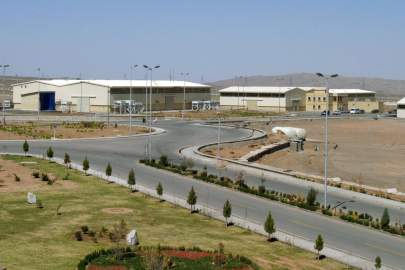Attack in Iran Stirs Fears for Future of Nuclear Talks

Iran on Monday accused Israel of orchestrating an attack on its main nuclear facility that stirred fears for the future of talks involving Washington and Tehran over a deal to constrain the Islamic Republic’s ability to produce a nuclear weapon.
The attack at Iran’s Natanz nuclear facility, which destroyed a number of centrifuges and caused an electricity blackout, occurred as U.S. Defense Secretary Lloyd Austin was visiting Israel and was preparing to meet with Israeli Prime Minister Benjamin Netanyahu.
Top Biden administration officials apparently were given no advance notice of the attack against the Iranian uranium-enrichment facility, according to people familiar with the situation.
Mr. Austin, asked about the attack before meeting Mr. Netanyahu, declined to address it and said only that U.S. diplomatic efforts, aimed at assuring Iranian compliance with terms of the 2015 nuclear agreement in exchange for easing U.S. sanctions, would continue.
The attack in Iran concerned European officials who remained party to the 2015 pact after the U.S. under former President Donald Trump withdrew from it.
European Union spokesman Peter Stano said there had been determination of the cause of the Natanz incident, but added: “We reject any attempts to undermine or weaken diplomatic efforts on the nuclear agreement.”
In Berlin, German Foreign Minister Heiko Maas said that talks last week in Vienna involving the U.S., Iran and other parties to the 2015 nuclear agreement had been constructive. Talks are scheduled to continue this week.
“What we hear coming out of Tehran is not a positive contribution, especially the developments taking place in Natanz,” he said, adding, “We don’t have our own insights” into what precisely happened.
Israeli officials have declined to comment on Sunday’s incident, although Israeli media has reported that the attack was carried out by its spy service Mossad.
In Washington, the White House said Monday that the U.S. had no involvement in the Natanz attack, adding there was no indication it would affect the continuing talks.
European officials expect the Vienna negotiations to resume this week, although there are concerns among the officials that the attack could further narrow the political tolerance for compromise in Tehran, complicating any agreement to restore the 2015 deal.
Iranian officials didn’t detail the nature or extent of the damage at Natanz.
On Monday, the head of Iran’s nuclear agency, Ali Akbar Salehi, said parts of the enrichment facility were operating on emergency electricity. He also said all damaged centrifuges were IR-1s, the first generation of Iranian centrifuges and a workhorse of Tehran’s enrichment program.
The attack is a potential blow to Iran’s enrichment capabilities. Tehran has raised enrichment levels in recent months as part of efforts to push the U.S. to lift sanctions imposed by the Trump administration. Israel is strongly opposed to the nuclear deal, which it says only puts a temporary cap on Iran’s quest for nuclear weapons.
Tehran denies it is seeking to produce such weapons, and says its nuclear program is peaceful. It also said Sunday’s incident didn’t set back its enrichment program. “Enrichment in Natanz has not stopped and is moving forward vigorously,” Mr. Salehi said.
In another sign that the attack may have caused significant structural damage, the spokesman for Iran’s Atomic Energy Organization, Behrouz Kamalvandi, fell down a hole more than 20 feet deep, cutting open his head and fracturing his ankle, as he visited Natanz on Sunday to inspect the damage, he told state television from his hospital bed.
Iran accused Israel of planning the attack to scuttle talks that began last week in Vienna between Tehran and world powers to revive the nuclear deal.
“Military and political officials of the Zionist regime have explicitly said they would not allow progress in removal of the unfair sanctions and now they think they reach their goal,” Iranian Foreign Minister Javad Zarif said in parliament on Monday, state television reported. “We will take revenge on the Zionists.”
Photo: The Natanz uranium enrichment facility in 2005.
PHOTO: RAHEB HOMAVANDI/REUTERS
Link: https://www.wsj.com/articles/iran-blames-israel-for-attack-on-nuclear-facility-vows-to-retaliate-11618229993











